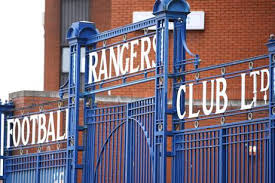July 10 – British tax authorities have lost their argument that payments made to players and other employees under the old Rangers football club should be taxable.
HM Revenue and Customs had appealed against Rangers’ use of Employee Benefit Trusts (EBTs) in what was dubbed in Scotland as the ‘Big Tax Case’. The authorities had argued that the payments should be taxable but the Murray Group, which formerly owned Rangers, insisted they were loans.
Upper tier judge Lord Doherty dismissed the appeal against a first-tier tax tribunal (FTT) decision, although he has referred several issues back to the original panel.
The FTT had issued a 2-1 majority verdict which favoured, in principle, the Murray Group in November 2012, and ordered that HMRC’s £46.2 million demands, about three-quarters of which referred to the liquidated club, be “reduced substantially”.
The judgement, which has no impact on the current Rangers regime, reads: “The appeal is dismissed except in so far as it relates to the termination payments.”
Rangers, one of the best supported clubs in Europe, were forced into administration in February 2012, over non-payment of tax totalling about £14 million. HMRC subsequently rejected proposals for a creditors agreement that would have prevented Rangers from going into liquidation.
The club’s assets were then sold and the Glasgow giants forced to start life again in the Scottish lower leagues under rules regarding insolvency.
Following the latest ruling, a spokesman for Murray International Holdings said: “We are satisfied that the UTT (upper tier tribunal) has now published its widely awaited decision and note the contents thereof. We are pleased with the judgement which again leaves negligible tax liability and overwhelmingly supports the views collectively and consistently held by our advisers, legal counsel and MIH itself.
“The decision substantially reduces HMRC’s claim in the liquidation of the old Rangers Football Club. While we have been successful in both the FTT and UTT, there are, as we have stated previously, no victors. It is obvious that the much publicised existence of these proceedings overshadowed Rangers Football Club for many years and tarnished the external perception of its value.
“There can be little doubt that despite favourable legal opinion, potential acquirers were therefore dissuaded from pursuing their interest during a period in which we were marketing the sale of MIH’s shareholding. The case has also stimulated extensive press and social media comment, discussion and speculation, a significant quantity of which has been ill informed.
“Notwithstanding all of this, it is abundantly clear that Rangers Football Club would not have gone into administration or liquidation had the purchaser fulfilled its contractual obligations and responsibilities. Similar to the resolution of the UTT appeal, we hope that the relevant authorities conclude their investigations and commence proceedings at the earliest opportunity.”
Contact the writer of this story at moc.l1734843389labto1734843389ofdlr1734843389owedi1734843389sni@w1734843389ahsra1734843389w.wer1734843389dna1734843389

